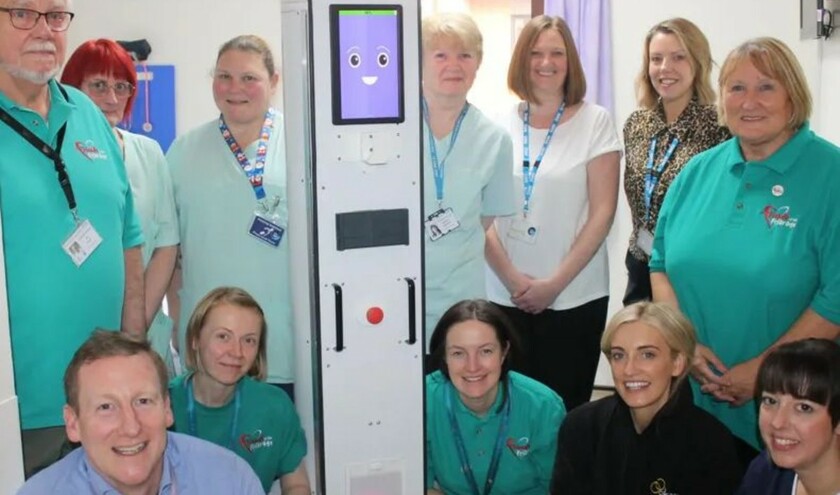Following positive initial trial results, the robots can be seen in the hospital's clinical decisions unit, wards and operating theatres as part of the next stage of the clinical evaluation of the technology.
The robots serve as a powerful tool to enable the hospital to decontaminate rooms with a quicker turnaround time.
Frontline staff, working with Akara, have created a bespoke workflows app with the aim of removing the need for paper checklists and providing real-time alerts when rooms are available.
Niamh Donnelly, co-founder and chief robotics officer at Akara Robotics, said: ‘Unique AI capabilities give our robots the ability to operate autonomously, which enables them to navigate and decontaminate clinical rooms based on a programme of cleaning instructions that they are given.'
James Dunbar, consultant in infection and general medicine and chair of the Friarage Clinical Collaborative, said: ‘Microbes with resistance to antibiotics are probably the biggest emerging challenge in healthcare today. Our main defence is cleaning and decontamination. Last year our pilot study using Akara technology had amazing results.
‘We are so grateful to the Friends of Friarage for funding our continued collaboration. It is massively exciting to work with absolutely cutting-edge robotic decontamination units and be right at the forefront of innovation.'
Looking ahead, Akara is preparing to formally launch a new product this year designed to help hospitals reclaim lost time in their surgical departments.



